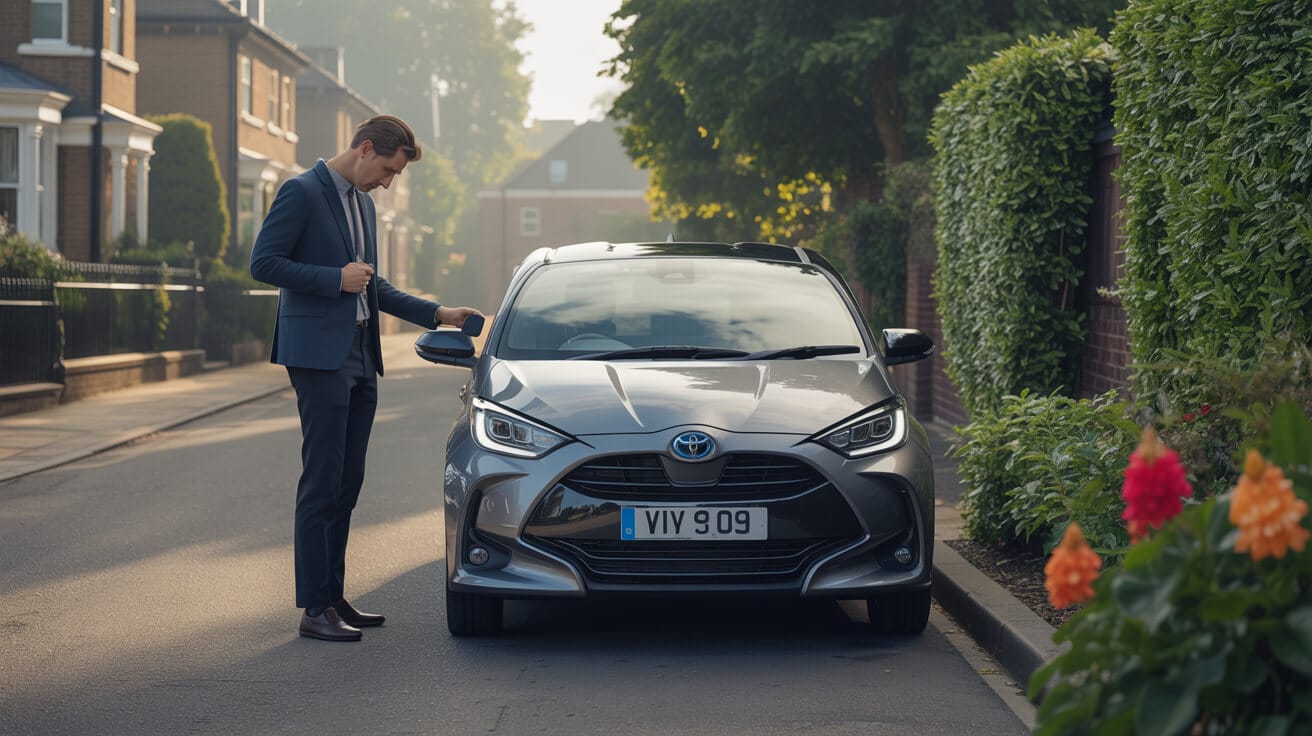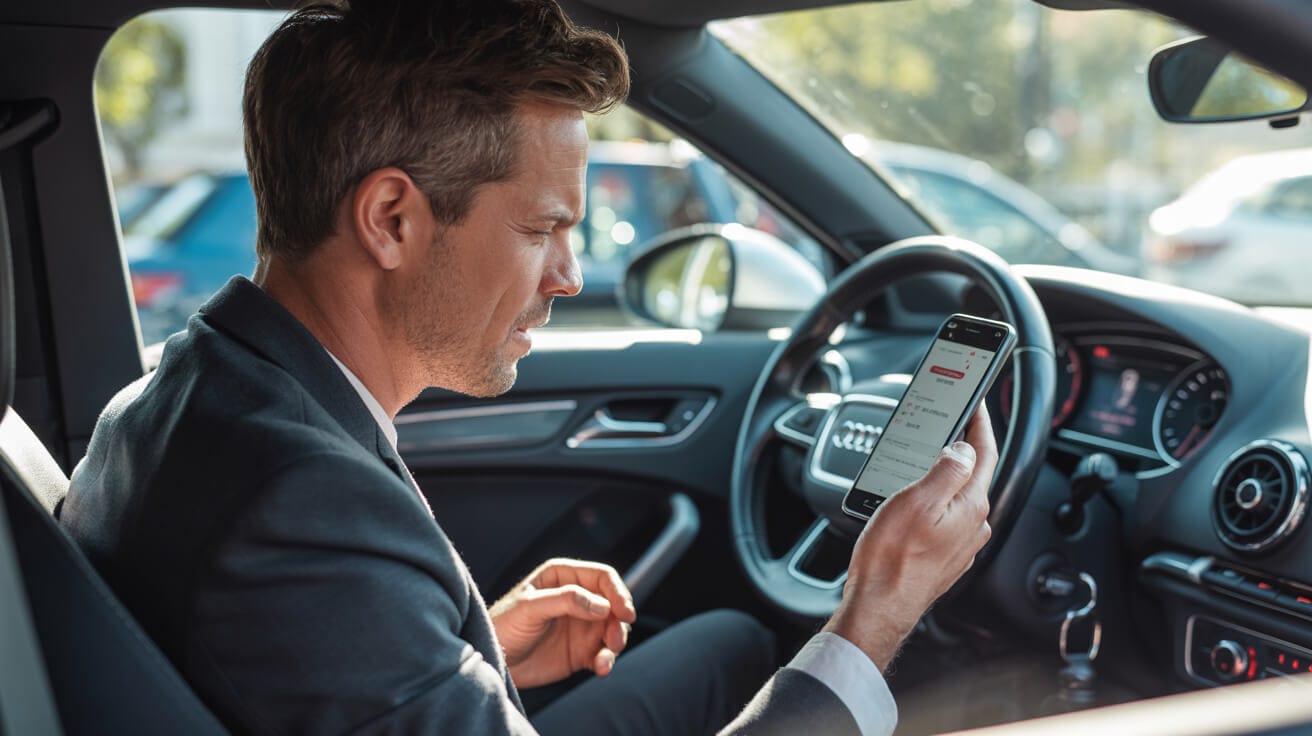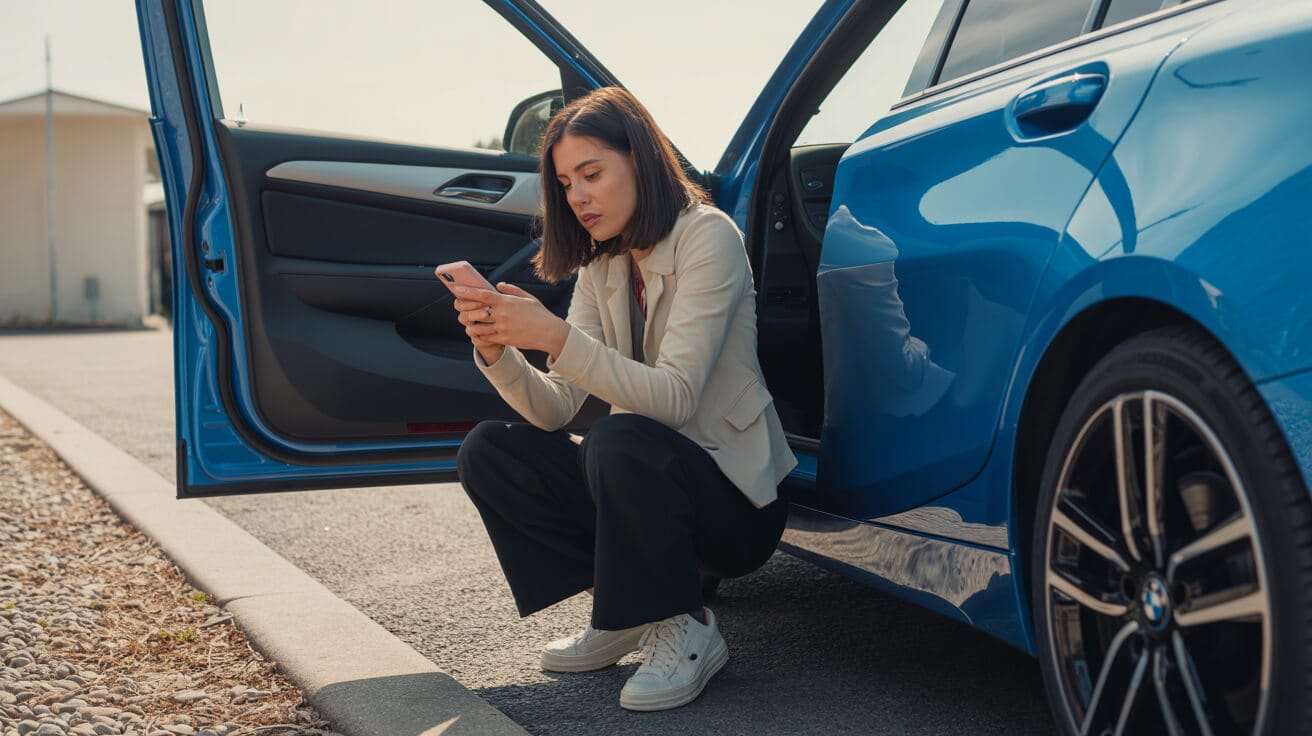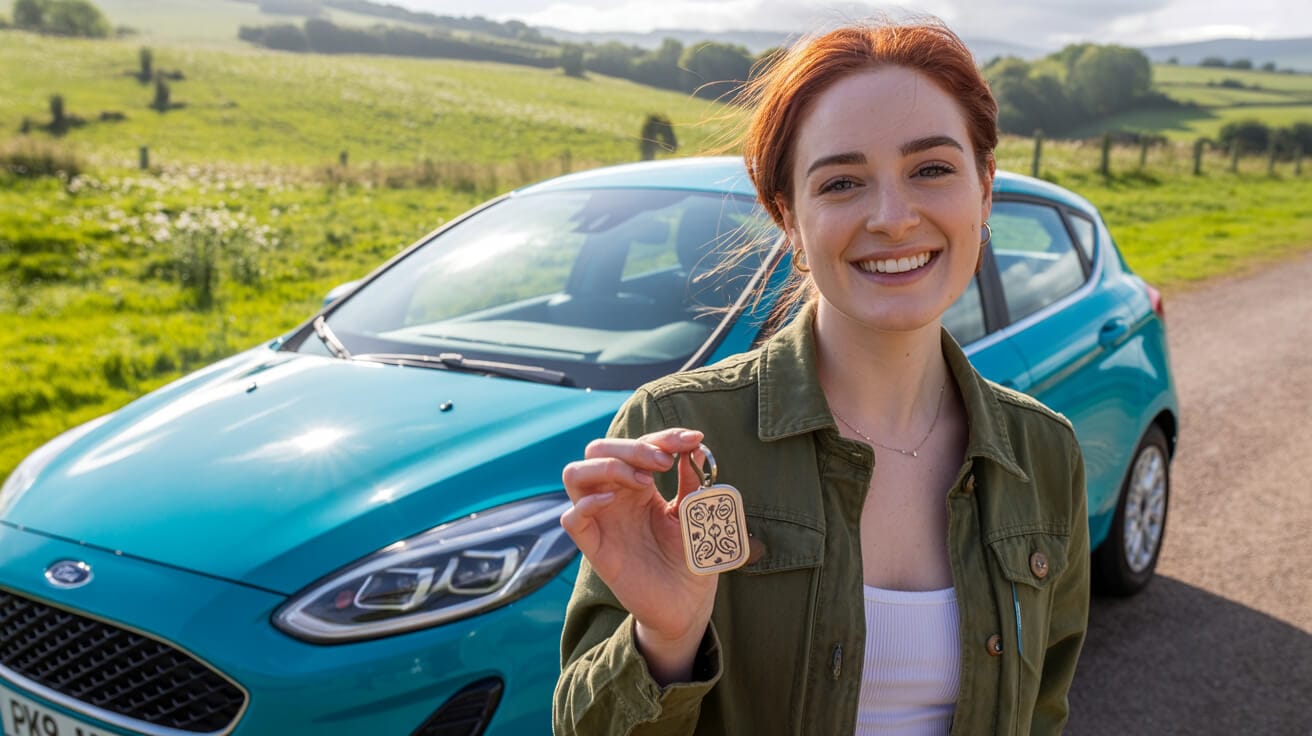How Have Transponder Keys Changed Car Security in Britain?
A transponder key reshaped car security in the UK overnight—making hot-wiring and basic theft almost obsolete for any vehicle built since 1995. When you insert a transponder key, you’re starting a hidden, split-second code-check. Think of it as an invisible handshake between the chip in your key and your car’s control module. If the handshake fits, the engine unlocks. If not, the car stays silent—ignition dead, drive-by thief stalled.
Britain’s steep drop in car theft directly tracks with the rise of these chip-based systems. Where old duplicate keys and forced ignition tricks once ran wild, today’s immobiliser requires more than a matching cut: your car asks for proof, every single start.
Most people never even see the security working—it just feels routine. But talk to anyone who’s lost their only working key, or tried to start a car with a clone, and you’ll hear how tough that digital barrier really is.
True security isn’t “seen.” It’s verified by what doesn’t happen: no unauthorised movement, no drama, just certainty.
You start your day, not a chase—transponder keys remove the criminal’s shortcut altogether.
Why Did Key Copy Shops Become Almost Obsolete Overnight?
Simple: mechanical copies alone don’t convince your car’s brain anymore. Without the programmed chip handshake, that shiny key is just a piece of metal. Only coded, registered spares can get an engine to trust and turn over.
How Can You Tell If Your Car Uses a Transponder Key?

The short answer: if your car is UK-registered from 1995 onward, odds are it uses a transponder system. Look for a thick plastic top on your key and a “key” or padlock warning light that flickers on, then off, as you turn the ignition or start button. That dashboard light is your car’s way of confirming it found the chip and that all systems are clear.
Older cars—think models before ‘95 or classics brought into the country—might still have metal-only keys. But across every new make and model, from Fords and Toyotas to BMWs and VWs, that little programmed chip is now non-negotiable.
Any company vehicle or leased fleet likely keeps an online key-log for each vehicle, protecting against lost spares or theft risks.
Your manual may mention “immobiliser” or “chip key.” If in doubt, call a professional with your registration; service vans are equipped to identify coded systems at a glance.
Don’t gamble with old assumptions: modern cars demand modern proof—your chip key is more irreplaceable than ever.
What Are the Homeowner’s Quick Checks?
Just turn your key to “on” and watch: that little padlock or key light should flick on and then fade. If it stays lit or flashes strangely, the chip check failed—often after a failed duplicate, battery issue, or system error.
What Happens When a Transponder Key “Handshakes” With a UK Car?

Each start triggers a security handshake between key and car. The ignition system emits a silent, low-frequency wave—your key’s chip wakes up and fires back a unique, encrypted “I’m here” code. The immobiliser module then checks: does the code match what’s authorised to start this car? If so, the dashboard light vanishes and the starter is allowed to crank.
It all happens so fast you barely notice: chip → handshake → start or silence. But try with a regular metal copy, and nothing happens at all.
Modern British vehicles make this handshake even smarter. Many deploy “rolling code” encryption—the code that unlocks the start sequence changes every use. This blocks hackers and code grabbers, ensuring yesterday’s intercepted response can’t be replayed.
- Key inserted or smart fob detected
- Car sends out a low-frequency “wake”
- Chip replies with encrypted code
- Module checks response
- Engine OK—or the car refuses the request
Digital handshakes replaced old-school breaking and entering with science—now almost every failed start is down to a code mismatch, not a jammed lock.
The thief faces a digital judge—no handshake, no start, just silence.
What Is a Rolling Code and Why Does It Crush Car Thieves?
A rolling code means every handshake is fresh. Each key press or ignition event shifts the code, making captured signals or copied chips totally useless for anyone but you.
What Can Go Wrong? Lost Keys, “No Start” Errors, and Bricked Cars

Losing your only programmed key feels like losing the keys to your life. Without an authorised chip, your car simply will not start—period. Even if a cheap copy lets you in, the immobiliser leaves you stranded. “Cloned” or unauthorised keys trick no system; modern cars refuse to allow any drive-away attempt, and missteps troubleshooting often lock modules requiring expensive, specialist resets.
Professional workflows always document spares—cheap copies risk insurance claims being denied or “bricking” your ignition module altogether.
| Issue | Car’s Response | Best Fix |
|---|---|---|
| Lost all keys | Full immobiliser lock | Dealer or accredited locksmith |
| Cloned or cheap copy | Key ignored, system locked | Full reprogram of all keys |
| Unlogged replacement | Insurance claim rejected | Documented, certified replacement |
| DIY gone wrong | Module lockout, towed car | Pro diagnostic and reflash |
Skipping the right order—ID, coding, traceable logs—turns an easy fix into a costly nightmare.
Bargain route? It’s false economy. More jobs come from “rescues” after botched DIY or dodgy copy jobs than from any simple lost-key call.
The shortcut always costs double: loss of time, cash, and peace of mind.
Why Are Budget-Key Repairs So Risky?
Because the metal gets you in, but not home. If the chip isn’t right, the car never lets you leave—plus insurers and police can void cover if the chain of custody breaks.
Should You DIY Programme a Modern UK Car Key?

Tempted to save a little by programming your own key? With rare, old exceptions, post-2005 UK cars simply won’t let you. Security rules are now baked into the vehicle’s control modules. Only professionals with certified, approved tools can load fresh key credentials, and each session is encrypted, logged, and registered. Identity checks and audit trails are mandatory. Fail to verify, and the system locks out new keys by default.
Older cars—from before the anti-theft boom—sometimes allowed a self-programme sequence. But even then, documentation is key: DIY risks bricking a control unit or voiding insurance.
Trying and failing doesn’t just waste time—it can multiply costs. Many DIY attempts require a full dealer reset, reprogramming of every key, or even an entire immobiliser module replacement.
| Car Age | DIY Possible? | What Usually Goes Wrong | Insurance/Legal Impact |
|---|---|---|---|
| Pre-2005 | Sometimes | Programming confusion | Higher claim denial risk |
| 2005+ (modern) | No | Lockout, extra expense | Claims easily refused |
| Any failed DIY | — | Bricked module | Warranty also at risk |
The real cost of failed DIY isn’t just money—it’s the loss of your car and your legal proof-of-ownership chain.
Even if you “get away with it” now, the log will call you out later when you need official support, warranty, or replacement.
Why Are IDs and Logs Mandatory for New Keys?
Because British insurance, legal, and manufacturer rules demand each key event is tracked back to the registered owner. Off-the-books means off-the-road.
What Sets Professional UK Auto Locksmiths Apart?

Certified locksmiths—like Autolocks Ltd—do more than “cut keys.” Each call starts with an identity check. The process runs under official protocols using manufacturer-vetted tools with session encryption. Every key added, programmed, or replaced is logged against your car’s VIN and your ID. On completion? You’re shown a demo of lock, unlock, start, and alarm, then handed a clear warranty and paperwork.
For business users, this means every vehicle and key is audit-traceable. For families and private owners, it means peace of mind: your keys are proofed, your service documented.
Professionalism here is tangible: plain-English quotes, zero “side routes,” full compliance. If an option risks your warranty or insurance claim, it’s red-flagged, explained, and logged.
The right locksmith makes each event—a new key, a replaced fob—not just a fix, but a safety record for your future.
Cutting keys is easy; cutting corners ruins cars and records. Demand full service, full proof.
How Do Documentation and Warranty Change Your Position?
With proof in hand, you always have an answer for warranty, compliance, or claim disputes—even years later.
Why Compliance and Privacy Are Everything for Chip Key Security

UK law and insurance now treat key/vehicle data as sensitive personal information. Each replacement, programming event, or key log must:
- Begin with ID check, securely recorded
- Use approved, encrypted tools fitting UK/EU laws (radio/frequency)
- Create audit-proof, privacy-safe logs retained per compliance protocols
- End with customer records detailing aftercare, future support, and service summary
Grey-market or “fast, unregistered” operators bypass protection—leaving gaps in your repair and legal safety net. When an event isn’t logged, or a spare key isn’t certified, problems multiply down the line: claims blocked, warrants voided.
Think of compliance as a wall without doors for fraud—records and privacy are every bit as important as the steel and chips in your key.
Smart drivers know a service didn’t happen unless it’s both certified and logged—GDPR and insurer rules both back your need for proof.
Security isn’t only about hardware—it’s a paperwork game as much as any code.
How Does GDPR Affect Key Services?
Transponder keys tie directly to your car, often to your data. That’s why every access, programming, and handover is now audited under UK data and privacy rules.
What Do Key Replacements and Programming Really Cost in the UK?

Replacing a lost, damaged, or extra transponder key adds up—hardware, chip, chip programming, secure job logs, and VAT included. Main dealerships routinely charge £140 to £350, often asking for your car for multiple days. Accredited locksmiths, however, deliver the same chip-coded security—on your terms, at your door, typically between £90 and £220, usually in hours not days. Each service is fully itemised, transparent, and includes post-work handover signoff.
Here’s a straight price and turnaround breakdown for British drivers:
| Service Provider | Typical Cost Range | Turnaround Time |
|---|---|---|
| Main dealer | £140–£350 | 2–7 days |
| Accredited locksmith | £90–£220 | 1–4 hours |
| Online/import/DIY | £40–£120 | Days to weeks* |
(*Most DIY/import jobs never deliver a fully programmed immobiliser key—doors might unlock, but engines won’t start; insurer won’t cover any events.)
The value of faster, compliant local service becomes obvious when schedules—or contracts—are tight.
The surest way to avoid rework costs or legal headaches is always to pick a documented, audit-ready provider.
The cheap key is always more expensive after the fact, once you add in the tow, the new lock, and the lost coverage.
What Extras Should a Proper Service Always Include?
Look for a full demonstration after programming, clear receipts, and written aftercare. Any pro will transparently provide this—demand nothing less, even for a spare.
Why Should UK Drivers and Fleets Trust Autolocks Ltd?
Autolocks Ltd raises the bar for secure, documented, rapid key services—covering every major make, model, and system across Britain. Here’s what makes the difference:
- Fast, nationwide coverage: Emergency, standard, and fleet windows, urban and rural alike
- Rigorous intake: ID check, consent, clear SLA quote—no nasty surprises
- Secure key programming: Manufacturer-approved chips, encrypted logs, compliance certified
- On-site demo: Lock, unlock, start, alarm all signed off with you present
- Full aftercare: Warranty explained, aftercare pack given, future support channel open
- Fleet managers gain: Bulk booking options, digital job and KPI logs, audit-friendly records for every key added or replaced
Every Autolocks job creates a visible “safety chain” from intake to aftercare—demonstrable proof that’s as valuable to insurers, auditors, and fleet managers as it is to drivers.
The point isn’t just that you have a working key today—but that you own a living record, compliant, provable, and always on your side when the car, a claim, or a new driver’s needs come around.
Choose Autolocks Ltd when you want a chip key solution engineered for compliance, audit, and speed—ready for every test, every insurer, every audit, year after year. If you value trusted protocols, transparent documentation, certified technicians, and support that’s ready to prove itself every step, we’re ready to stand guard over your journey, your vehicle, your data, and your peace of mind.
Frequently Asked Questions
How Did Transponder Keys Revolutionise Vehicle Security in the UK?
Transponder keys didn’t just make UK cars harder to steal—they rendered old theft techniques obsolete overnight. When you insert a coded key, your vehicle demands a silent digital handshake: only if your chip’s encrypted response matches your immobiliser will the engine unlock. For thieves, forced entry or hotwiring is now basically a dead end.
In the 1990s, car theft in Britain was rampant. Opportunists exploited simple mechanical locks. By 2020, statistics from the UK Home Office confirm car theft rates dropped over 80% thanks to immobilisers and transponder technology. That change isn’t about optics—it’s measurable lost revenue for criminals, and real cost reduction for honest drivers and insurers alike.
The day the key became a code, car crime’s odds collapsed—and compliance suddenly mattered.
What If a Metal Key Copy Isn’t Enough?
A fresh-cut metal key, without the right electronic chip, won’t even crank the engine. Only coded keys, properly programmed and logged, re-enable modern cars.
What Happens When Criminals Target Modern Cars?
Even advanced thieves hit a wall—every failed start is tracked, every service leaves a digital fingerprint. Without a certified chip handshake, nothing moves.
How Can You Tell If Your Vehicle Requires a Coded Transponder Key?
If your car was registered in the UK from 1996 onward, a transponder-based system is almost certain. Classic signs include a chunky key grip (housing the chip) and a dashboard symbol—often a padlock or key—briefly lighting up as you engage the ignition.
To verify, twist the key: does a security light flash and fade? That’s the immobiliser checking your transponder’s validity. If you have a push-button starter, the indicator usually appears as you tap the button. Company fleet managers should know: all spare keys should be logged, and key events tracked for both audit trails and insurance purposes—exactly the approach Autolocks Ltd brings to every call.
Every time that dashboard icon blinks, your system’s quietly checking credentials before letting you drive.
Try This Home Test:
Turn your key—light flickers then goes dark? All clear. If it stays lit, flashes, or never appears, your immobiliser may need urgent expert attention. Delaying may lead to surprise lockouts.
Why Bother with Regular Checks or Pro Confirmation?
Intermittent lights can indicate chip failures or invisible faults in antenna wiring—so a professional scan by Autolocks Ltd secures your peace of mind before a minor issue becomes an emergency.
What Happens Inside Your Car Each Time a Transponder Key Starts the Engine?
Each start is a split-second digital exchange: your car emits a low-frequency “challenge” that wakes the chip in your key. The chip answers with a cryptographically unique token. The immobiliser checks this code—and only if it matches does it tell the engine control unit (ECU) to let fuel and spark flow.
Modern security ramps things up further: with rolling code protocols, every handshake changes the code, defeating “replay” attacks or simple cloning. This means intercepted or copied signals are instantly useless. Autolocks Ltd’s tools communicate in this same secure language—ensuring every new key, fob, or module is future-proofed against common attacks and always logged.
Every successful start is a record in your vehicle’s digital diary—an invisible layer of security.
Can Thieves Bypass or Clone This System?
Rolling code and encryption block most attempts instantly—any unusual attempts are flagged and retrievable for insurer or police investigation.
What About When a Professional Supports You?
Autolocks Ltd only ever programmes or rescues you after strict owner ID checks and with full audit records—so even the “fix” protects your warranty and insurance.
What Goes Wrong If Keys Go Missing, Copies Are Faulty, or You Try DIY?
Losing every original key turns your car into an immovable asset—no override, no backdoor. Using a non-coded replacement (even one cut to match) gives you silence: modern systems don’t just refuse to start, they log the failed attempt permanently. Trying DIY programming on late-model cars often leaves modules “bricked” and may void not just warranties but insurance, with claim rejections mounting if documentation is missing.
Insurers and recovery services now demand complete paper trails—who programmed the key, when, what system, which credentials. Skimping could cost thousands, as claims are denied and cars immobilised pending certified repair.
| Condition | Car’s Response | What Actually Solves It |
|---|---|---|
| All keys lost | Full lockout, no bypass | Certified locksmith or dealer only |
| Using a blank key | No start, fault logged | Secure chip, officially programmed |
| Unlogged key event | Claims at risk | Traceable service & digital log |
| Failed DIY attempt | Module dead, towing needed | Expert recovery & system reset |
The shortcut price? Hidden fees, cancelled cover, rescue bills—none worth it.
Why Is Digital Record-Keeping the Heart of Modern Security?
Auditable logs are now the gold standard—insurance, warranty, or a police report all depend on an incontestable chain of custody.
Do Fleet or Business Vehicles Face Stricter Rules?
Absolutely. Every key event is logged, with policies mirroring top automotive insurers. Autolocks Ltd ensures the same rigour for private owners, securing each asset’s compliance.
Is It Still Possible to Programme a Key Yourself—or Does Modern Security Lock You Out?
For nearly all UK cars made since 2005, DIY programming is locked out by encrypted ECUs and security policies. Manufacturers mandate that all key registrations occur through secure, logged sessions, only after owner ID is strictly verified. Any misstep—especially with off-the-shelf “ghost programmer” devices—risks permanent immobiliser lockdown, voided coverage, or even physical lockout.
A handful of older cars (pre-2005) do allow home programming, but these processes are fading, insurer sympathy even faster. Get it wrong and you’ll be paying for recovery, new modules, and documentation surgery to restore compliance.
| Year/Model | DIY Possible? | Common Issue | Insurance Posture |
|---|---|---|---|
| Pre-2005 | Sometimes | Confusion, miscodes | High risk, likely denials |
| 2005+ | No | Lockout, module risk | DIY voids most coverage |
| Failed attempt | — | Module bricked | All cover at risk |
Online quick fix tools often hide a huge, irreparable risk for drivers.
Why Does Every Key Event Require Full ID and Log Control?
A seamless record deters theft, prevents fraud, and proves you took every legal step—safeguarding claims and car alike.
What Happens If You Ignore These Rules?
Lost proof means denied claims, denied help, and a locked car—no one wins except the problem.
Why Do Discerning UK Drivers and Businesses Choose Autolocks Ltd Over Cut-Price or Dealer-Only Options?
Trust in car security is earned—not bought with a key blank. Autolocks Ltd stands alone for rapid callout, discipline over compliance, and ironclad, digital audit trails. Every job begins with owner ID verification and a compliance checklist, proceeds only with certified, secure tools, and is completed with a lock/unlock/start demonstration—filmed, logged, and handed over with an aftercare pack worthy of your insurer, fleet contract, or audit demand.
Business clients benefit from digital KPI exports, traceable job logs, and always-on compliance proof—saving time, risk, and downtime on every vehicle managed. Drivers get security, audited claims support, and the benefit of knowing their assets and records are shielded—today and when the next crisis comes.
Real auto security is invisible traceability, not just a working key.
What’s the Next Step for Compliance-Backed Car Ownership?
If your security, warranty, or fleet tracking truly matters, Autolocks Ltd connects the dots—from call to compliance to future-proof aftercare—every step, logged and proven.







